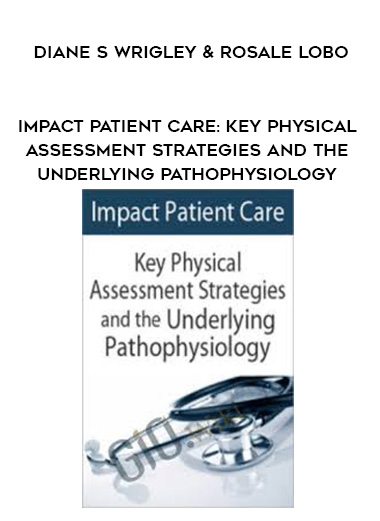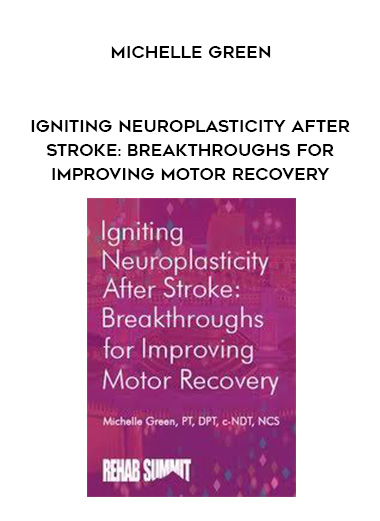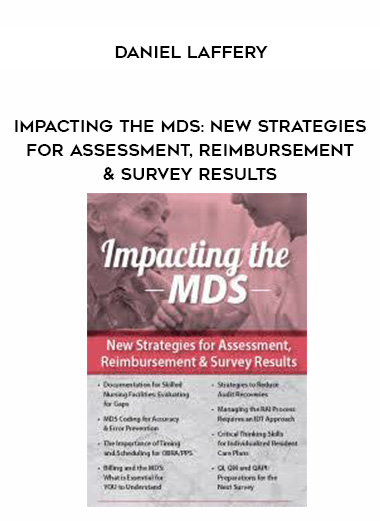IMPACT PATIENT CARE: KEY PHYSICAL ASSESSMENT STRATEGIES AND THE UNDERLYING PATHOPHYSIOLOGY – DIANE S WRIGLEY & ROSALE LOBO
Are you missing vital clues during physical assessments?
What separates nursing from other specialties is our ability to assess for signs and symptoms of disease. But physical assessment exams can be disjointed, confusing, and overwhelming.
In this self-paced online course, top experts will guide you step-by-step through the physical assessment and underlying pathophysiology. You’ll walk away with an orderly way to do physical assessments so you don’t lose the flow or forget steps. It’s quick, it’s neat, it’s concise, and it’s very complete.
“The incorporation of real-life heart and lung sounds make this presentation come alive.”
- Listen to normal and abnormal heart and lung sounds and step through the origin and significance of each sound
- Learn methods to properly document your assessments and findings
- Discover nitty-gritty tricks to simplify your nursing diagnostic skills
- Revitalize your clinical competence and master challenging disease facts
Expectations are high, and every detail matters. Take the fear out of assessments with this information-packed course — work at your own pace to boost your skills, gain confidence, and make good assessments
Here’s what you’ll learn in this comprehensive online course:
SESSION 1:
Mastering Physical Assessment Skills: Identify Cardiac, Respiratory and Neurological Disorders with Diane S. Wrigley, BS, PA-C
Learn to identify the different variants in the cardiac, respiratory and neurological assessments. National speaker and expert, Diane Wrigley, BS, PA-C, has developed a CD that accurately plays both abnormal and normal heart and lung sounds. Diane will teach you the origin and significance of these sounds utilizing the auditory portion of the CD. Differential diagnoses are considered and a systematic six-part neurological assessment is reviewed and demonstrated for you.
Case studies will be presented for discussion to help reinforce the physical assessment skills and listening techniques. Diane will also illustrate the proper methods to document your assessments and findings. You will feel confident leaving this seminar with information you can utilize for your future patient assessments.
- Strategies to detect and identify abnormal heart and lung sounds
- Case Studies and audio playback to enhance learning
- Crackles, wheezes, rubs, gallops, clicks and snaps
- Full disclosure and how this leads to proper differential diagnoses
- Characteristics and causes of heart murmurs
- Complete 6-part neuro exam made simple — exam will be demonstrated
- Discussion and work-up for mental status changes
SESSION 2:
Pathophysiology: Clinical Application at the Bedside with Rosale Lobo, PhD(c), MSN, RN, CNS, LNCC
Sarah ran into the break room obviously upset. “I’m frazzled,” Sarah said. “When a patient presents with a less common condition or disease, it seems impossible to try to keep the pathophysiology, interventions and related treatments all straight. I want to give the best to my patients, but struggle to keep on top of everything.”
In your clinical position, you are generally competent; however, there are times when an assignment comes your way that gets your stomach turning. Oh dear, what does it mean when someone has had a Whipple procedure? Or does a patient with a parathyroid disease need more or less calcium; what are the signs of hypocalcaemia? What are the signs and symptoms of myasthenia gravis? And what about the questions from patients’ loved ones… How is it best to educate lay people about diseases when the internet plays such a huge role in information sharing?
Relax and enjoy a day of pathophysiology with Rosale Lobo, PhD(c), MSN, RN, CNS, LNCC. Rosale has a wonderful way of making this information interesting, fun and practice-changing! Learning will happen through an interactive approach that uses case studies, open discussions, media and anecdotal experiences to bring lessons to life. You are guaranteed to experience revitalization of your clinical competence and mastery of some very challenging disease facts.
- Nitty gritty facts about common (and some less common) diseases
- Useful checklists to make assessments quick and easy
- Key points to document for clarity of communication
- Pertinent points that add to your clinical confidence
- Acronyms that take the guess work out of pathophysiology recall
Tag: Impact Patient Care: Key Physical Assessment Strategies and the Underlying Pathophysiology – Diane S Wrigley & Rosale Lobo Review. Impact Patient Care: Key Physical Assessment Strategies and the Underlying Pathophysiology – Diane S Wrigley & Rosale Lobo download. Impact Patient Care: Key Physical Assessment Strategies and the Underlying Pathophysiology – Diane S Wrigley & Rosale Lobo discount.




